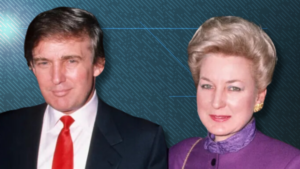For the first time, the U.S. Supreme Court has adopted a code of conduct.
The historic policy was issued on Nov. 13 after several justices faced a smear campaign from left-wing activists over gifts they received that were not subject to reporting requirements.
For the most part, the rules and principles are not new, according to the code of conduct published by the Court.
“The Court has long had the equivalent of common law ethics rules,” the document states.
“The absence of a code, however, has led in recent years to the misunderstanding that the justices of this Court, unlike all other jurists in this country, regard themselves as unrestricted by any ethics rules. To dispel this misunderstanding, we are issuing this code, which largely represents a codification of principles that we have long regarded as governing our conduct,” the Court said.
Ethics concerns have dogged the Court for more than a year, following reporting from far-left media organization Pro Publica, which targeted Justice Clarence Thomas over travel and gifts received that he was not required to disclose.
Justice Samuel Alito also faced questions over several trips he received, as did Justice Sonia Sotomayor who raised eyebrows after a report revealed her staff prodded public institutions hosting her to purchase her books, which have earned her at least $3.7 million since she joined the Court.
The code of ethics requires justices to provide more information about potential conflicts of interest. It also allows impartial panels of judges to review a justice’s decision to not recuse themselves from certain cases. It also improve transparency around gifts received by justices and set up a process to investigate violations.
The code of conduct comes during a time when Americans’ trust in the Supreme Court is historically low. A recent Gallup survey on trust in institutions found a 17-point drop among Americans who have trust in the judicial branch.
Last summer, confidence in the Supreme Court sank to a historic low after the Court’s decision in the Dobbs v. Jackson Women’s Health Organization case that overturned Roe v. Wade.

